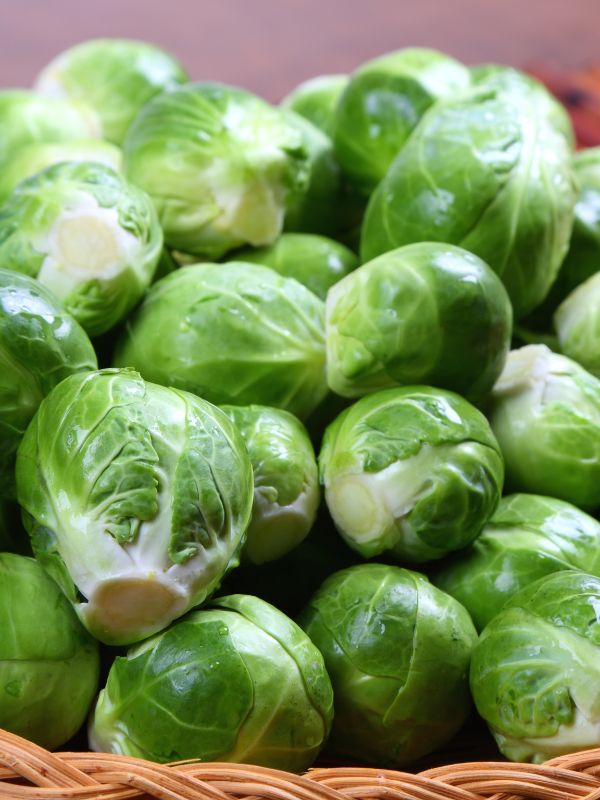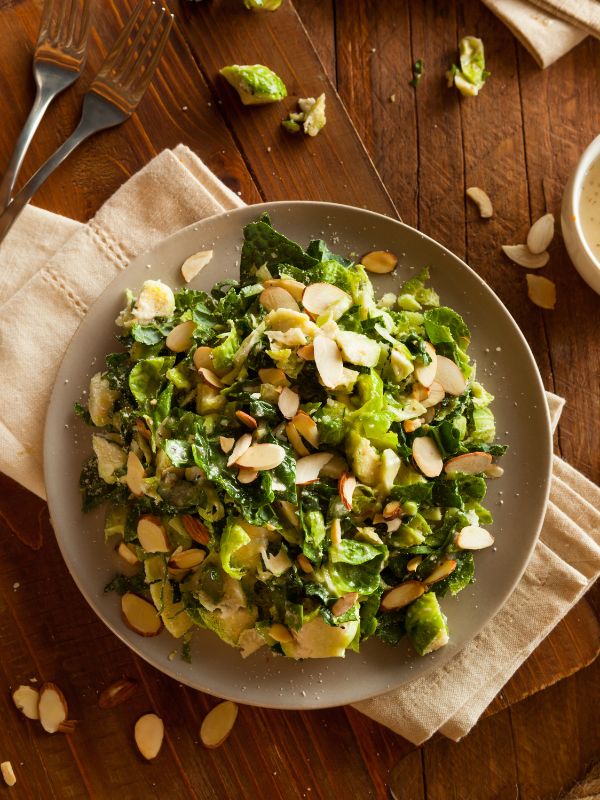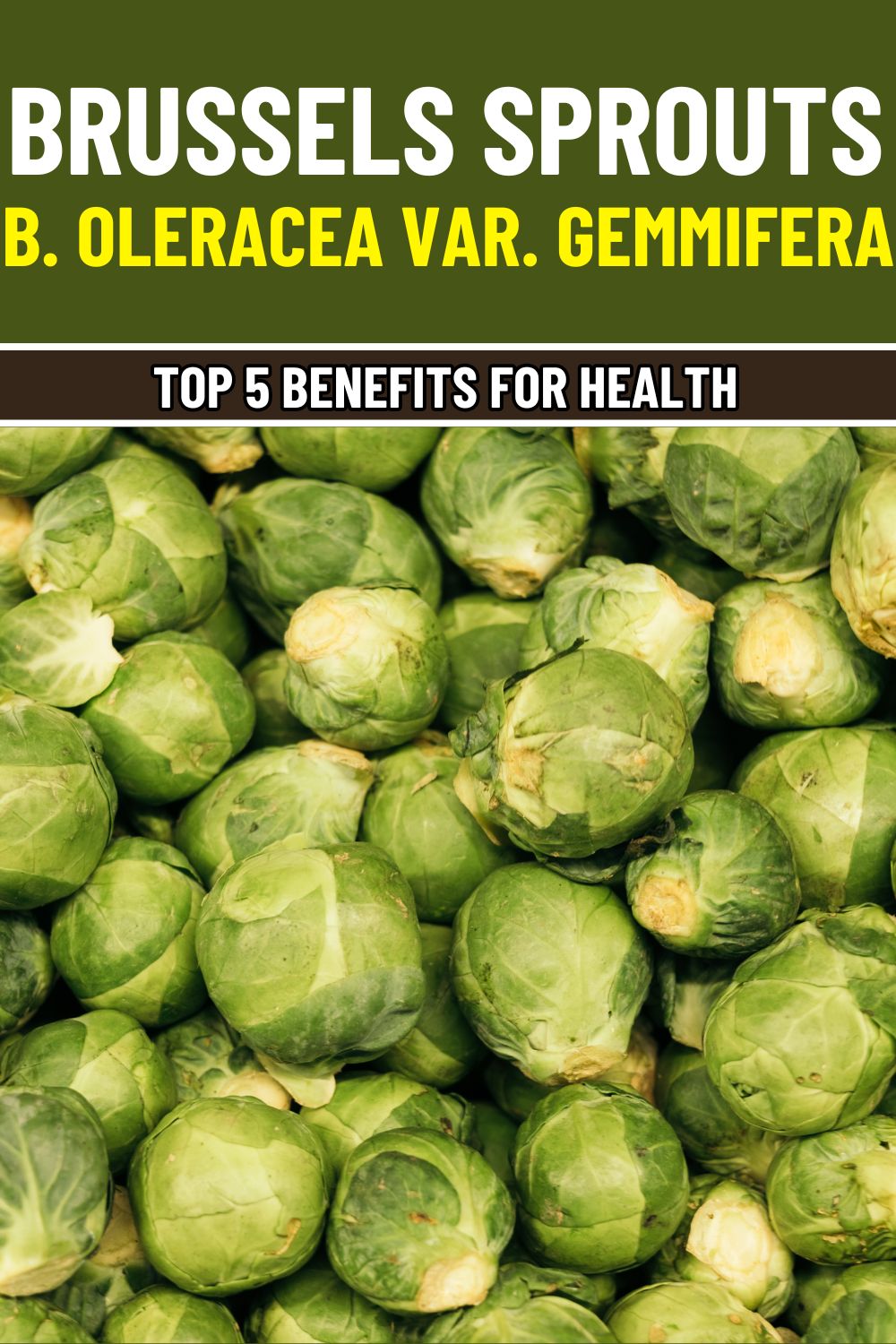Brussels sprouts may be small, but their health benefits are enormous. These cruciferous vegetables, closely related to kale and broccoli, are nutrient-dense and versatile.
Packed with vitamins, minerals, and antioxidants, they can improve your overall health in numerous ways. If you’re not already including Brussels sprouts in your diet, now’s the time to start.
#1. Rich in Antioxidants for Cell Protection
According to Healthline, diets high in antioxidants can significantly reduce the risk of oxidative stress-related diseases. Brussels sprouts are loaded with antioxidants, which help neutralize harmful free radicals in your body.
Free radicals can cause oxidative stress, leading to cellular damage and increasing the risk of chronic diseases like cancer and heart disease. Fortunately, Brussels sprouts are especially rich in flavonoids and glucosinolates, which are known for their anti-cancer properties.
Moreover, a serving of 100 grams of Brussels sprouts provides about 85 mg of vitamin C, a powerful antioxidant that not only protects your cells but also helps regenerate other antioxidants in the body.

#2. Supports Digestive Health
Fiber is essential for a healthy digestive system, and Brussels sprouts are a great source of it. With about 3.8 grams of fiber per 100 grams, they help promote regular bowel movements and prevent constipation.
Fiber also serves as food for the beneficial bacteria in your gut, supporting a healthy microbiome, which is crucial for digestion and overall health.
Moreover, research has shown that a diet rich in fiber can reduce the risk of colorectal cancer and support the treatment of conditions like irritable bowel syndrome (IBS).

#3. Reduces Inflammation
Chronic inflammation is a key contributor to diseases like diabetes, cancer, and heart disease.
Brussels sprouts contain anti-inflammatory compounds, including vitamin C, which helps reduce oxidative stress, and sulforaphane, a compound formed when Brussels sprouts are chewed or chopped.
Adding just one cup of Brussels sprouts to your meals can help reduce inflammatory responses. Pair them with other anti-inflammatory foods, like turmeric or fatty fish, for even greater benefits.

#4. Supports Bone Health
Brussels sprouts are an excellent source of vitamin K, providing a remarkable 177 micrograms per 100 grams, which is over 200% of the daily recommended intake.
Vitamin K is crucial for bone health because it helps regulate calcium, the main mineral found in bones. It also activates proteins that strengthen bone tissue and prevent calcium from being deposited in arteries and other soft tissues.
Studies have shown that individuals with higher vitamin K intake have a lower risk of fractures and osteoporosis. However, if you are on blood-thinning medication, be cautious with your vitamin K intake and consult your doctor.

#5. Boosts Immune Function
Your immune system needs support, and Brussels sprouts deliver with their high vitamin C content. With about 85 mg of vitamin C per 100 grams, they play a vital role in strengthening your immune defenses.
Vitamin C enhances the production of white blood cells, which help fight off infections and illnesses. It also acts as an antioxidant, protecting your immune cells from oxidative damage.
Studies have shown that individuals who consume adequate vitamin C experience shorter durations of colds and flu. Therefore, add Brussels sprouts to your diet, especially during the colder months keep your immune system in top shape.

How to Use Brussels Sprouts in Your Diet
- Roasted Brussels sprouts: Toss Brussels sprouts with olive oil, salt, and pepper, and roast them at 400°F (200°C) for 20-25 minutes until they’re crispy and golden. Roasting brings out their natural sweetness and makes for a delicious side dish.
- Brussels sprout stir-fry: Slice Brussels sprouts thinly and add them to stir-fries with other vegetables, proteins like chicken or tofu, and your favorite sauces. This is a quick and healthy way to enjoy Brussels sprouts.
- Brussels sprouts salad: Shred Brussels sprouts and toss them with a tangy vinaigrette, nuts, and dried fruits for a crunchy, refreshing salad. Add some cheese like feta or goat cheese for extra flavor.

Cautions and Precautions
Brussels sprouts can cause bloating, gas, or discomfort for some individuals, especially if they are not accustomed to a high-fiber diet. Start with small servings and gradually increase intake.
Brussels sprouts are rich in vitamin K, which can interfere with blood-thinning medications like warfarin. If you take these medications, you must maintain a consistent vitamin K intake and consult your healthcare provider.
Like other cruciferous vegetables, Brussels sprouts contain goitrogens, compounds that can interfere with thyroid function if consumed in large amounts. If you have thyroid issues, speak with your doctor.
Disclaimer
The information provided in this article is for general informational purposes only and should not be interpreted as medical advice.
Always consult with a healthcare professional before making significant changes to your diet, especially if you have specific health concerns or are on medications.

5 Powerful Health Benefits of Brussels Sprouts You Should Know About
